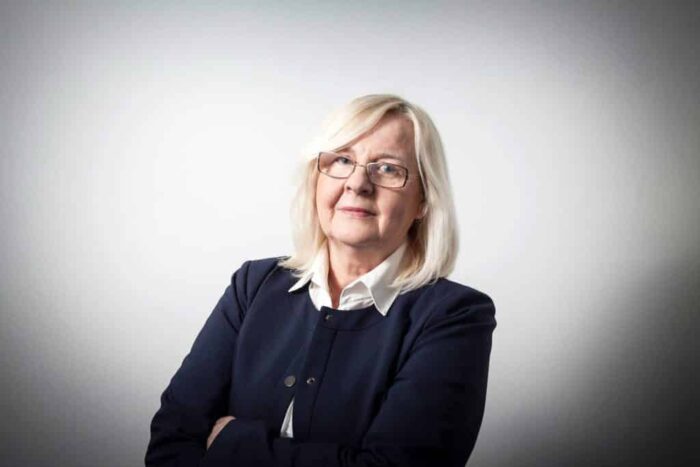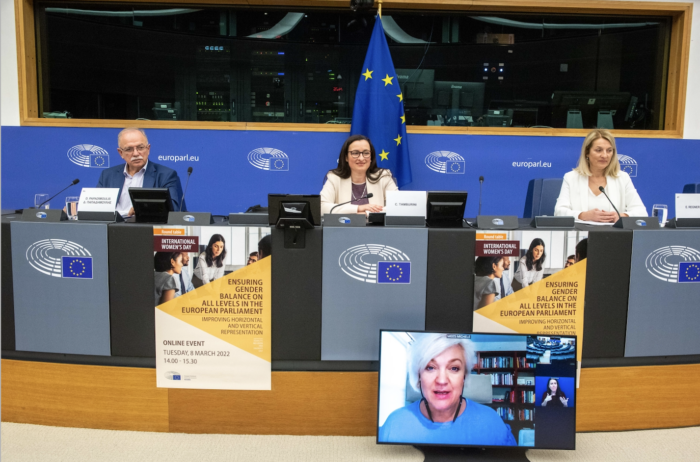The Progressive Post
The Polish left and the Poland’s women’s fight for survival
Polish women are literally fighting for their lives. The present women’s movement in Poland, illustrated by the Black Protests, represents a challenge to the right-wing government and anti-gender groups who mobilise against policies of equality, women’s reproductive rights and anti-discrimination. It is also an opportunity for the Left to come back to a social debate controlled by PiS (Law & Justice) and to stand up for a group expecting more social justice.
Poland was chosen by religious fundamentalists as an experimental battleground, the first stage of their efforts to “re-Christianise Europe”. Why Poland? There are many reasons, but the most important are: it’s an almost 100% Catholic country, with some of the most restrictive abortion laws in Europe, and the ruling right-wing party PiS for “Peace and Justice” with its absolute majority in Parliament. There is no left-wing opposition in the Parliament anymore. Fundamentalists were sure that there was nobody strong enough to oppose their law initiatives directed against basic women’s rights.
Even if the Catholic Church and the ruling party largely support the ban, they did not initiate it. The Ordo Iuris institute – a so-called “legal think tank” and hardline conservative advocacy group – was the author of the draconian law which was submitted by the Stop Abortion coalition as a citizen’ initiative. The proposed draft law foresaw a total ban of abortion with no exception, criminalisation of women and doctors who perform abortion, investigation of every case of an unintended miscarriage as well as no more access to prenatal tests and hormonal contraception.
A wave of activism
This radical neo-conservative movement made a huge mistake. They went one step too far. For Polish women, it became too much to endure. Until now, they silently bore the restrictive anti-abortion law for the sake of so-called „sacred peace in the society”. When they realised that a draconian law, a total ban of abortion, was to be introduced, there was an explosion of anger, outrage and determination to take action.
This wave of activism reached the peak on the 3rd of October 2016, called the “Black Monday”. The event surpassed all feminists’ dreams and expectations.
Outside of the Parliament, left wing par- ties and women’s organizations merged to establish the “Save the Women” civic committee as a counter–initiative in reaction to the “Stop Abortion” draft law. The committee worked out an alternative draft law, entitled “On the Rights of Women and Conscious Parenthood” which would guarantee a full standard of reproductive rights.
On 23rd of September 2016, both drafts law were discussed in the Parliament. The “Stop Abortion” proposal was sent for further proceedings to the parliamentary committees, while “Save the Women” was rejected in the first reading.
Grass-root organisations across Poland like the Federation for Women and Family Planning have built a powerful coalition raising aware- ness about the threat to women’s health and human rights. They launched effective media campaigns putting pressure on the govern- ment throughout 2016 culminating in the Black Protest strikes where women dressed in black took the streets nationwide as a sign of protest.
This wave of activism reached the peak on the 3rd of October 2016, called the “Black Monday”. The event surpassed all feminists’ dreams and expectations. Thousands of women protested in over 60 Polish cities, despising the pouring rain (hence the umbrella as the demonstrations’ emblem). First, politicians from the ruling party intended to neglect the women’s protest, but shortly they understood that women were determined to fight to the end as long as it was needed. Three days later, the Parliament somewhat nervously rejected the draft law proposed by the “Stop Abortion” Committee. It was a powerful and critical moment within a long fight. Polish women have won this battle. However, this victory is not the end of the road. Following the conservative government’s latest attempt in March 2018 to restrict access to abortion, the Polish parliament’s committee for human rights endorsed the draft law in spite of renewed mass protests and the strong calls from the Council of Europe and UN experts to reject it. Therefore, the fight for women’s sexual and reproductive health rights has to continue and the role of civil society is more important than ever.





